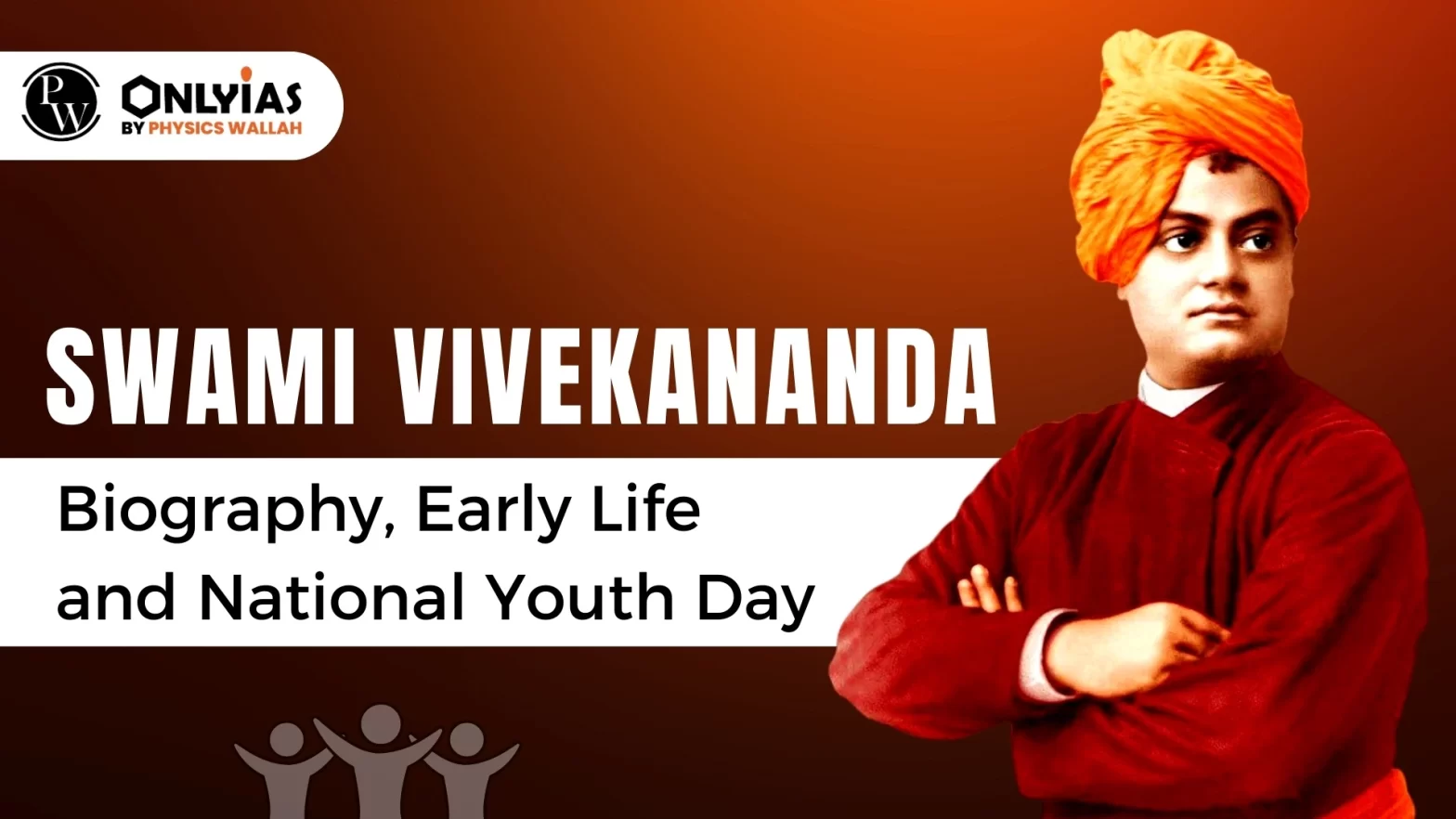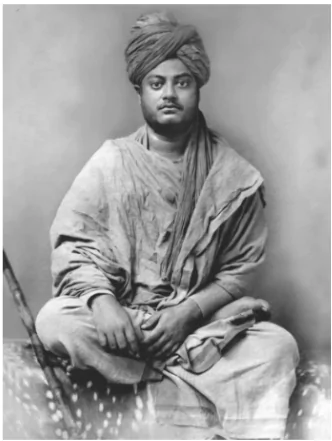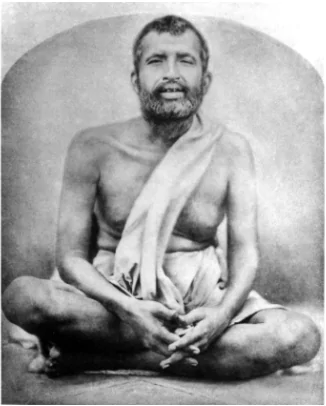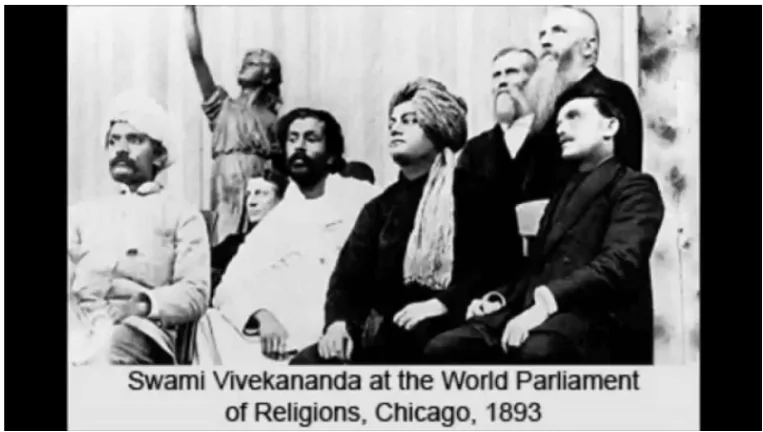Swami Vivekananda was a great spiritual leader, reformer, and youth icon who revived Vedanta globally and inspired generations through service, unity, and self-belief.

Swami Vivekananda remains one of the most respected spiritual figures in India and across the world. Born on January 12, 1863, in Calcutta (now Kolkata) as Narendranath Datta, he became a pioneering force in reviving Hindu philosophy and establishing Vedanta on the global stage. Swami Vivekananda was not merely a monk but a reformer, orator, philosopher, and a role model for millions of youth. His contributions were deeply rooted in the ethos of self-realisation, service to humanity, and interfaith harmony.
List Of International National Days 2026 Month-Wise List
National Youth Day 2026, celebrated on January 12, marks the 163rd birth anniversary of Swami Vivekananda, honoring his timeless teachings on self-confidence, character building, and service to humanity that continue to inspire India’s youth. Declared a national event in 1984 by the Government of India, the day transforms into a nationwide movement through seminars, debates, cultural programs, and youth leadership initiatives across schools, colleges, and communities. This year gains added prominence as Prime Minister Narendra Modi addresses 3,000 young leaders at the Viksit Bharat Young Leaders Dialogue concluding session at Bharat Mandapam, New Delhi, emphasizing youth’s pivotal role in achieving a developed India by 2047. The week-long National Youth Week features innovation challenges, skill workshops, and social campaigns by NCC, NSS, and other organizations, channeling Vivekananda’s vision into actionable nation-building efforts.
Swami Vivekananda was born as Narendranath Datta on 12th January 1863 in Calcutta (now Kolkata), into an upper-middle-class Bengali Kayastha family. His father, Vishwanath Datta, was an attorney and a man of reason, while his mother, Bhuvaneshwari Devi, was deeply spiritual. From a young age, Narendranath displayed sharp intellect, a questioning mind, and an indomitable spirit.

Source: bengaluru.rkmm.org
The Swami Vivekananda original name, Narendranath, eventually gave way to “Vivekananda” in 1893, just before his historic departure to the West. The name, suggested by Ajit Singh of Khetri, combines viveka (discernment) and ananda (bliss), capturing the essence of his spiritual mission.
| Swami Vivekananda Biography | |
| Aspect | Details |
| Original Name | Narendranath Datta |
| Date of Birth | January 12, 1863 |
| Place of Birth | Calcutta (now Kolkata), West Bengal, India |
| Father’s Name | Vishwanath Datta |
| Mother’s Name | Bhuvaneshwari Devi |
| Spiritual Guru | Sri Ramakrishna Paramhansa |
| Monastic Name | Swami Vivekananda |
| Meaning of Vivekananda | ‘Viveka’ means discrimination/conscience; ‘Ananda’ means bliss |
| Education | Presidency College & Scottish Church College, Calcutta |
| Key Philosophies | Vedanta, Yoga, Karma Yoga, Jnana Yoga, Bhakti Yoga |
| Famous Speech | World’s Parliament of Religions, Chicago, 1893 |
| Founded Organizations | Ramakrishna Math and Ramakrishna Mission (1897) |
| Notable Contributions | Introduction of Hinduism to the West, Youth Empowerment, Interfaith Harmony |
| Books Authored | Raja Yoga, Karma Yoga, Jnana Yoga, Bhakti Yoga, Lectures from Colombo to Almora |
| Death | July 4, 1902 |
| Place of Death | Belur Math, West Bengal, India |
| Legacy Day | January 12 celebrated as National Youth Day in India since 1985 |
Narendranath’s life took a transformative turn when he met Sri Ramakrishna Paramhansa in 1881. A devotee of the Divine Mother Kali, Ramakrishna led Narendranath beyond logic and materialism, toward a mystical spiritual path. Although initially skeptical, Narendranath eventually embraced Ramakrishna’s teachings, becoming his chief disciple.

Source: Wikipedia
After Ramakrishna’s passing in 1886, Narendranath renounced worldly life and embarked on an extensive journey across India as a wandering monk. He witnessed firsthand the suffering of India’s masses, which deeply influenced Swami Vivekananda teachings, laying the foundation of his humanistic and inclusive philosophy.
One of the most defining moments in Swami Vivekananda’s life came in 1893 when he represented Hinduism at the World’s Parliament of Religions in Chicago. He began his speech with the iconic words, “Sisters and Brothers of America,” which received a standing ovation. At the Chicago conference, Swami Vivekananda eloquently introduced Hindu philosophy, emphasising the unity of religions, universal brotherhood, and acceptance.

Source: IndiaTV
His message: “Help and not fight, assimilation and not destruction, harmony and peace and not dissension,” resonated across the globe. From that point, he became a global ambassador of Indian spirituality, delivering lectures in the United States and England on Vedanta and Yoga.
On his return to India in 1897, Swami Vivekananda founded the Ramakrishna Mission and Ramakrishna Math, headquartered at Belur Math, West Bengal. These institutions continue to serve as centers of education, spiritual guidance, healthcare, and social reform. Later, he also founded Vedanta Societies in New York and San Francisco, spreading the light of Vedanta in the West.
These organisations, inspired by Swami Vivekananda teachings, carry out humanitarian services based on the ideal of “Atmano mokshartham jagat hitaya cha” — “For one’s own salvation and for the welfare of the world.”
The core of Swami Vivekananda’s teachings lies in Vedanta, a philosophy that emphasises the divinity of on atma (soul), maya (illusion), karma (action), and moksha (liberation), bridging ancient wisdom with modern life.. He urged people to see God in humanity, to uplift the poor, and to disregard superstition and narrow-mindedness.
Key elements of his teachings include:
Swami Vivekananda personified qualities that are essential for young individuals—courage, discipline, curiosity, self-belief, and service. His message was dynamic, action-oriented, and empowering.
Recognising his timeless relevance, the Government of India has declared 12th January (his birthday) as National Youth Day since 1985. Swami Vivekananda’s life urges the youth to channel their energy into nation-building, education, innovation, and moral growth. He often said, “Give me 100 energetic young men and I shall transform India.” His teachings promote self-confidence, diligence, and determination, values essential for youth navigating the modern world.
The legacy of Swami Vivekananda lives on through institutions, publications, and movements inspired by his teachings. He established Vedanta Societies in the West, including those in New York (1894), San Francisco (1900), and Boston (1909). These continue to disseminate Indian philosophy and spiritual thought globally.
In recent years, the Indian Government has initiated projects like:
Swami Vivekananda authored several influential books during his lifetime, focusing on Vedanta philosophy, yoga paths, and spiritual practices, with many more compiled posthumously from his lectures and writings.
| Swami Vivekananda Books | |
|---|---|
| Book Title | Publication Year |
| Karma Yoga | 1896 |
| Raja Yoga | 1896 |
| Lectures from Colombo to Almora | 1897 |
| Jnana Yoga | 1902 |
| Bhakti Yoga | Posthumous |
| Inspired Talks | 1909 |
| Complete Works (9 Volumes) | Posthumous |
Swami Vivekananda’s quotes distill profound wisdom on self-realization, strength, and service, drawn from his speeches and writings that continue to motivate millions worldwide.
| Swami Vivekananda Famous Quotes | |
|---|---|
| Quote | Theme |
| “Arise, awake, and stop not until the goal is reached.” | Motivation |
| “You have to grow from the inside out. None can teach you, none can make you spiritual. There is no other teacher but your own soul.” | Self-Realization |
| “All the powers in the universe are already ours. It is we who have put our hands before our eyes and cry that it is dark.” | Inner Strength |
| “In a conflict between the heart and the brain, follow your heart.” | Intuition |
| “Take risks in your life – If you win, you can lead! If you lose, you can guide!” | Courage |
Swami Vivekananda stands tall as a beacon of hope, intellect, and devotion. His ideas remain relevant in addressing today’s global challenges—from religious intolerance to youth unrest, from educational reforms to spiritual enlightenment. As India continues to progress, his clarion call—“Arise! Awake! And stop not till the goal is reached”—serves as a timeless reminder to the youth to rise with courage, character, and compassion.
Remember Swami Vivekananda not only on National Youth Day or on his death anniversary, but every day by embodying his values in our thoughts, words, and actions. Through education, discipline, service, and spirituality, we can walk the path he envisioned and contribute to building a stronger, wiser, and more compassionate world.
Ready to boost your UPSC preparation? Join PW’s UPSC online courses today!
Check Out UPSC CSE Books
Visit PW Store
The Swami Vivekananda biography highlights his early life, discipleship under Ramakrishna, his spiritual journey, and global impact on Vedanta philosophy.
Swami Vivekananda’s original name was Narendranath Datta, born on January 12, 1863, in Calcutta, India.
Swami Vivekananda's teachings emphasise self-realisation, service to humanity, the unity of religions, the strength of character, and disciplined living.
Swami Vivekananda inspired youth through his message of self-confidence, fearlessness, education, and national service, making him an enduring role model.
Swami Vivekananda, in the Chicago conference (1893), delivered a landmark speech promoting religious harmony, which earned him global recognition as a spiritual leader.
<div class="new-fform">
</div>